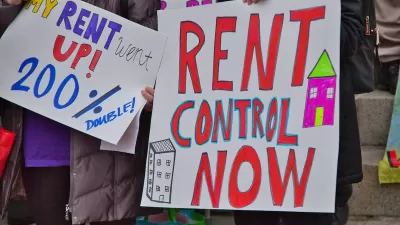As states elbow each other to lure movie makers to their markets with increasingly attractive tax incentives, some say the competition has gone too far.
Some worry that states are having to offer sweeter and sweeter deals in order to keep up with the competition, but are greatly decreasing the worth of those contracts to the state's coffers.
"Michigan may offer the sweetest deal to moviemakers, but the reality is that almost every state has some incentives designed to attract Hollywood productions. What was unique just a few years ago has quickly become standard. Back in 2002, only five states offered production incentives for film projects. But as of the beginning of this year, more than 40 states do. Arizona, Connecticut, Illinois and Louisiana, for instance, offer 30 percent tax credits or rebates, while Alabama, Maryland and North Carolina offer 25 percent--and on down the line. In fact, these types of incentives have become so de rigeur that even California has felt obliged to get in on the act. Lawmakers last year approved a 25 percent credit for films shot in the Golden State.
All totaled, states distributed $1.8 billion in incentives and tax credits to the entertainment industry from 2006-2008, according to an Associated Press study. 'States are trapped,' says Robert Tannenwald, an economist and a senior fellow at the Center on Budget and Policy Priorities. 'Thanks to the extreme mobility of film production, when one state goes after these movies, another state, if it wants to stay in the game, has to match the deal they're offering.'"
FULL STORY: The Value of Movie Tax Incentives

Alabama: Trump Terminates Settlements for Black Communities Harmed By Raw Sewage
Trump deemed the landmark civil rights agreement “illegal DEI and environmental justice policy.”

Study: Maui’s Plan to Convert Vacation Rentals to Long-Term Housing Could Cause Nearly $1 Billion Economic Loss
The plan would reduce visitor accommodation by 25% resulting in 1,900 jobs lost.

Why Should We Subsidize Public Transportation?
Many public transit agencies face financial stress due to rising costs, declining fare revenue, and declining subsidies. Transit advocates must provide a strong business case for increasing public transit funding.

Wind Energy on the Rise Despite Federal Policy Reversal
The Trump administration is revoking federal support for renewable energy, but demand for new projects continues unabated.

Passengers Flock to Caltrain After Electrification
The new electric trains are running faster and more reliably, leading to strong ridership growth on the Bay Area rail system.

Texas Churches Rally Behind ‘Yes in God’s Back Yard’ Legislation
Religious leaders want the state to reduce zoning regulations to streamline leasing church-owned land to housing developers.
Urban Design for Planners 1: Software Tools
This six-course series explores essential urban design concepts using open source software and equips planners with the tools they need to participate fully in the urban design process.
Planning for Universal Design
Learn the tools for implementing Universal Design in planning regulations.
Caltrans
Smith Gee Studio
Institute for Housing and Urban Development Studies (IHS)
City of Grandview
Harvard GSD Executive Education
Toledo-Lucas County Plan Commissions
Salt Lake City
NYU Wagner Graduate School of Public Service





























